There's no getting away from it: the
Dungeon Hunter series has been somewhat spoiled by Gameloft's heavy-handed implementation of the freemium model.
But underneath all those in-your-face weapon purchase prompts, delayed item upgrades, and irritatingly calculated difficulty spikes, there's a polished action-RPG.
So, in spite of our grumbles, there's plenty of fun to be had with
Dungeon Hunter 4. Plus, given that you can get a lot of that enjoyment for free, there's a good chance a number of you will have downloaded it.
We won't be supplying you with a full walkthrough - partly because we can't afford to complete the game (zing!) - but we can provide some gentle guidance as you begin your epic quest. Hopefully, it will cut down on irritation and minimise expenditure.
Right, let's get questing.
Class guide
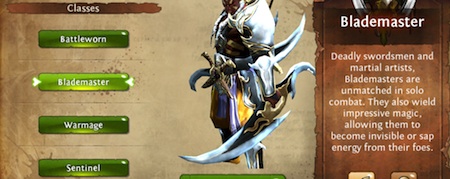
First up, you need to select a warrior. You can divide these four archetypes roughly into two distinct categories: melee and ranged.
Melee fighters are easier to control, with your right thumb simply having to hammer a virtual button to attack. You control ranged fighters, meanwhile, in much the same way you control your character / craft in a twin-stick shooter, so you need a little aiming finesse.
Here's how each individual class shapes up.
Battleworn: Slow, strong physical attacks that practically beg you to get up close and personal. There's no point hammering the attack button - steady, rhythmic taps as you finish each swipe are the way forward. Just make sure that you're pointing in the right direction when you do, or you'll be left open.
Blademaster: Quicker dual-wielding slashes. Possibly the most immediate and easiest class to get to grips with, as you can button mash your way to decent results.
Warmage: Ranged magical attacks that do decent damage and have a bit of a blast radius. Don't think you can't get in close and mix it up, either - your wand swipes will take out multiple foes up close, though don't get too bogged down. Not the toughest cookie.
Sentinel: Ranged, quick-fire attacks. Possibly the hardest class to play as initially, as shots need to be well aimed and your second special attack does no damage at all. The idea here is to keep out of trouble and use that evasive roll plenty. You have to aim the first special, too, which is tricky when you need to take your thumb off the movement stick to activate it.
Combat strategies

If you've plumped for one of the melee classes, you have to be aggressive. Saying that, you don't want to get surrounded.
Both melee classes have a very useful dash attack (the first one you earn at the beginning of the game) that simultaneously causes damage and acts as an evasive move. So, use it to avoid being mobbed.
Speaking of the charge attack both melee classes have, consider it your best tool when you get to the arena levels and find yourself a little overwhelmed. Run left and right to bunch the enemies together - Pied Piper style - then turn and activate the attack to cause some carnage. Now, run in the opposite direction and repeat.
For the ranged classes, you want to keep enemies, in general, at arm's length. Many enemies will hang around in the vicinity until approached, so use the radar to pinpoint and target them when off-screen for some cheap kills.
Be aware that ranged class special attacks tend to be grouped around the movement controls. This means you have to stop to activate them, so make sure you have a little breathing space when using them.
General advice
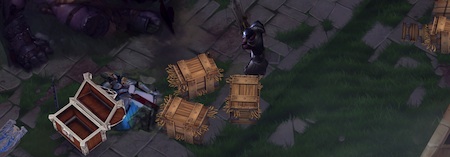
- Explore the levels thoroughly, smashing all boxes and pots for loot. In the same way, never pass up a fight unless you're extremely low on health. You need that experience and the loot that enemies drop.
- Don't hoard weapons: sell them when you find something better. It's almost always worth paying to remove charms from their slots, though. You can always earn more gold, and a good charm combo can come in very handy.
- Though it's good to sell useless weapons, it's worth holding on to one or two alternative weapons that have completely different charm slot shapes or alternative charm loadouts. That way, you can change your weaponry according to the opposition.
- It's not worth buying gems for advanced weapons or items of armour until you really need them, which is likely to be when you reach your first arena battle.
- Don't bother wasting gems to speed up charm removal - it's never essential. The same generally applies to upgrading equipment. Waiting for an upgrade to kick in will rarely hold up a mission, as you'll only really get a significant advance in ability level by spending gems on an all-new kick-ass piece of equipment. Just be patient and get on with the game while the timers tick down.
- It's good to keep a wide spread of charms in reserve to fit whatever slots a new piece of equipment might come with.





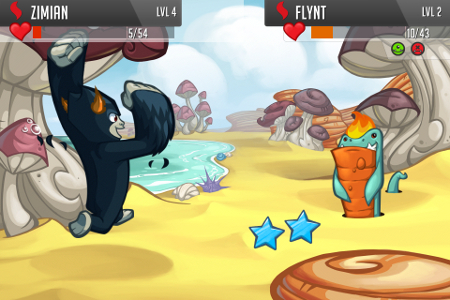


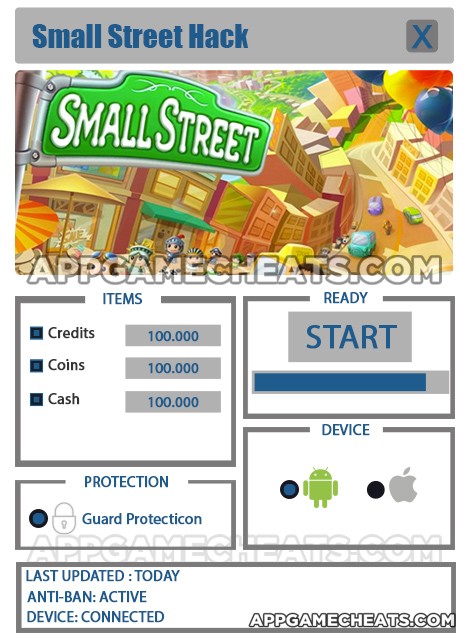
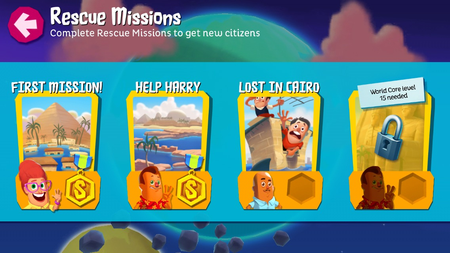 How to play Supernauts - tips and tricks for Grand Crus Minecraft-inspired city builder
How to play Supernauts - tips and tricks for Grand Crus Minecraft-inspired city builder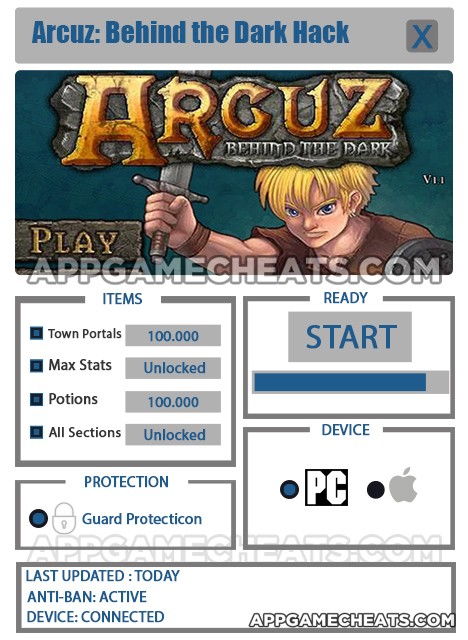 Arcuz Behind the Dark Hack for Town Portals & Potions 2016
Arcuz Behind the Dark Hack for Town Portals & Potions 2016 BlindTest Guess The Cartoons Quiz All Level Answers
BlindTest Guess The Cartoons Quiz All Level Answers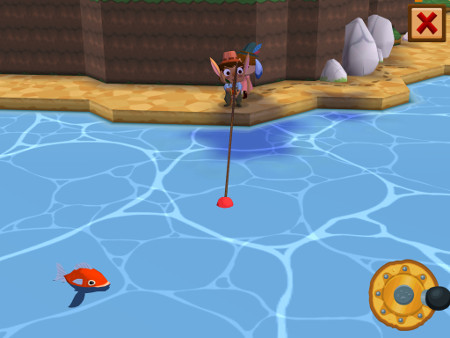 How to rule the waves - Seabeard cheats
How to rule the waves - Seabeard cheats Hi Guess the Oracle All levels Answers
Hi Guess the Oracle All levels Answers